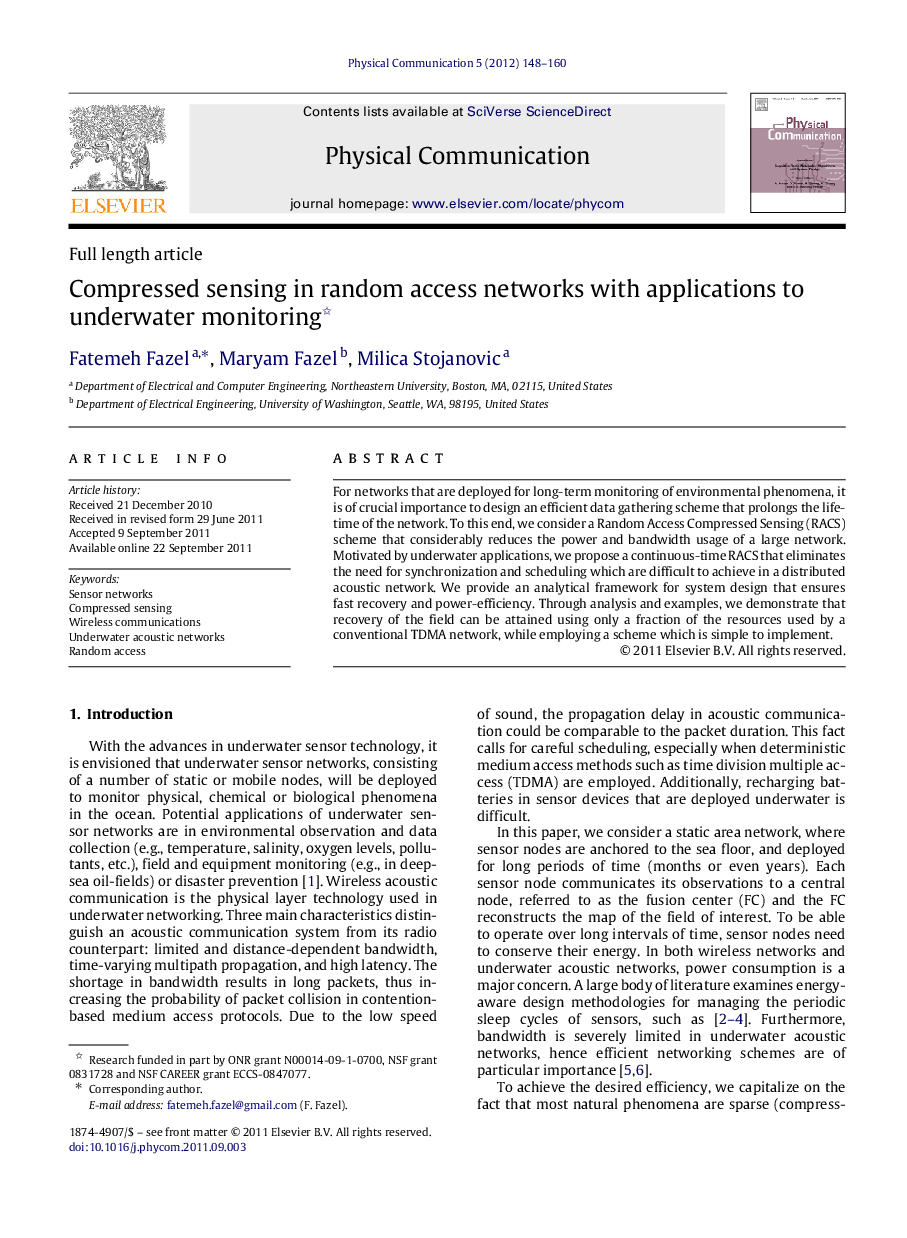| Article ID | Journal | Published Year | Pages | File Type |
|---|---|---|---|---|
| 466361 | Physical Communication | 2012 | 13 Pages |
For networks that are deployed for long-term monitoring of environmental phenomena, it is of crucial importance to design an efficient data gathering scheme that prolongs the life-time of the network. To this end, we consider a Random Access Compressed Sensing (RACS) scheme that considerably reduces the power and bandwidth usage of a large network. Motivated by underwater applications, we propose a continuous-time RACS that eliminates the need for synchronization and scheduling which are difficult to achieve in a distributed acoustic network. We provide an analytical framework for system design that ensures fast recovery and power-efficiency. Through analysis and examples, we demonstrate that recovery of the field can be attained using only a fraction of the resources used by a conventional TDMA network, while employing a scheme which is simple to implement.
